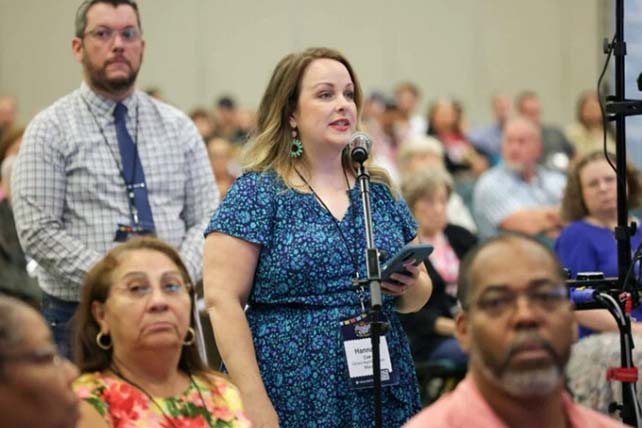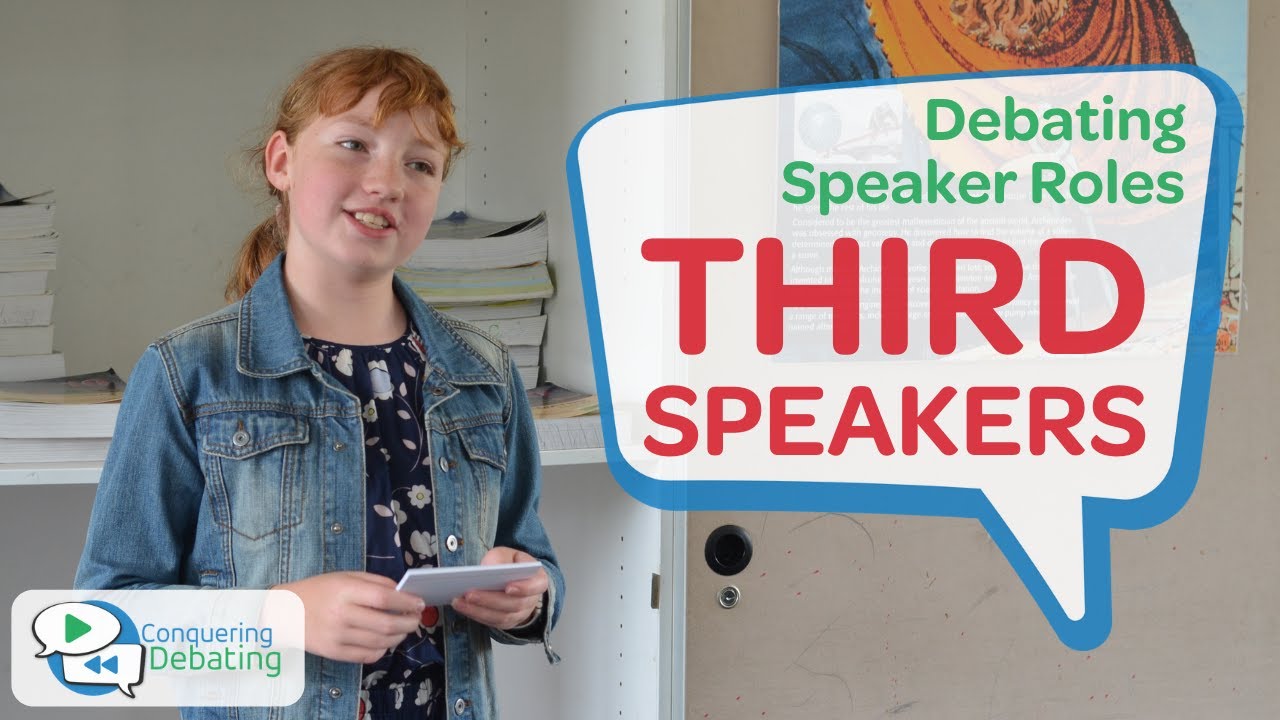What are the Roles in a Debate
The roles in a debate include the moderator, the affirmative team, and the negative team. Debates involve the exchange of arguments and counterarguments on a specific topic.
The moderator is responsible for ensuring a fair and structured discussion, while the affirmative team supports the proposition and presents arguments in favor. On the other hand, the negative team opposes the proposition and aims to rebut the arguments presented by the affirmative side.
Through effective communication and persuasive skills, participants engage in a lively discourse to convince the audience of their stance on the topic. Debates offer a platform for critical thinking, public speaking, and the exploration of different perspectives on important issues.
Importance Of Roles In A Debate
Roles play a crucial part in effective debates as they facilitate structure, organization, clarity, and engagement. By assigning specific roles, such as moderator, timekeeper, and speakers, debates can flow smoothly and discussions can stay on track. Each participant is responsible for playing their designated role, which helps ensure equal participation and prevents chaos.
The moderator ensures that everyone follows the rules and maintains order, making sure that all viewpoints are heard. The timekeeper ensures that each speaker adheres to the allocated time, preventing any single participant from dominating the conversation. By assigning roles, the debate becomes more focused and participants are able to present their arguments more effectively.
Ultimately, the roles in a debate contribute to a productive and well-structured discussion, enabling a thorough exploration of ideas and perspectives.
The Moderator’S Role
The moderator plays a crucial role in a debate by ensuring a fair and balanced discussion. They manage the time and flow of the debate effectively, allowing each participant to express their views within the allotted time. The moderator maintains order and ensures that everyone has an equal opportunity to speak.
They facilitate a productive and respectful environment where all participants feel heard and respected. The responsibilities of the moderator include keeping the debate on track, preventing any digressions or personal attacks, and encouraging a constructive exchange of ideas. With their guidance, the moderator ensures that the debate progresses smoothly and reaches a meaningful conclusion.
Overall, the moderator’s role is pivotal in creating an engaging and informative debate environment.
The Debaters’ Roles
Debates involve various roles that participants take on to ensure a structured and fruitful discussion. These roles include defining positions and presenting arguments concisely. Each debater must support their claims with credible evidence, reinforcing their viewpoint effectively. Additionally, they should be skilled in countering opponents’ points with logical reasoning and persuasive facts.
By adopting diverse roles, debaters create an engaging and balanced conversation that encourages critical thinking and analysis. The roles foster a productive exchange of ideas, guiding the debate towards a deeper understanding of the topic at hand. Through their active participation, debaters contribute to a comprehensive examination of all perspectives involved.
Ultimately, these roles enrich the debate experience by stimulating intellectual growth and fostering a respectful environment for mutual learning.
The Audience’S Role
During a debate, the audience plays a crucial role by actively participating and engaging with the discussion. They evaluate and judge the arguments presented by the speakers. Additionally, their role involves asking questions to clarify points and providing valuable feedback to strengthen the overall debate.
This active participation ensures that the audience remains engaged and contributes to the exchange of ideas. The audience’s role is not passive; they actively listen, analyze, and form opinions based on the arguments put forth by the debaters. By fulfilling their role, the audience contributes to the success of the debate and fosters a meaningful exchange of viewpoints.
Their engagement and input enrich the overall experience for both the participants and the audience members themselves.
The Role Of The Rebuttal Speaker
The rebuttal speaker plays a crucial role in a debate, facing various challenges and opportunities. They analyze opponents’ arguments and weaknesses while strengthening their team’s position. Their task involves countering counterarguments effectively, ensuring their team’s points are presented convincingly. The rebuttal phase demands careful examination of the opposing side’s claims, allowing for a strategic response that undermines their position.
By identifying weaknesses in the opponents’ arguments, the rebuttal speaker can strengthen their own team’s case further. This process involves skillful scrutiny to challenge the opposing arguments and leave a lasting impact on the audience. Through persuasive and well-planned rebuttals, the speaker contributes significantly to their team’s success in the debate.
The Role Of The Timekeeper
The timekeeper plays a crucial role in a debate by maintaining the debate’s time limit. They signal speakers for time increments and ensure equal speaking opportunities for all participants. This allows for a fair and balanced exchange of ideas and prevents any one speaker from monopolizing the conversation.
The timekeeper’s role is essential in keeping the debate structured and on track, helping to create a productive and informative discussion. They keep track of time, allowing each speaker to express their thoughts within the allocated time frame. Without a diligent timekeeper, debates could become chaotic and ineffective, with speakers talking over each other and the discussion losing focus.
Thus, the role of the timekeeper is vital in facilitating a successful and meaningful debate.
The Adjudicator’S Role
The adjudicator plays an important role in a debate by assessing the debaters’ performance and arguments. They are responsible for ruling on the debate’s winner and assigning scores based on various criteria. Additionally, the adjudicator provides constructive feedback and suggestions to help each debater improve their skills.
Their role is crucial in ensuring fair and unbiased evaluations. The adjudicator’s feedback serves as a valuable resource for debaters to develop their reasoning, presentation, and critical thinking abilities. Their assessments contribute to the growth and development of the participants, fostering healthy competition and intellectual discourse.
The adjudicator’s role requires a keen understanding of the subject matter, effective observation, and the ability to provide insightful guidance to encourage debaters’ growth.

Credit: churchleaders.com
The Role Of Research And Preparation
The role of research and preparation in a debate is crucial. Gathering evidence and supporting data helps build a solid argument. Developing persuasive arguments requires careful analysis and well-reasoned points. Understanding opponents’ positions is important to counter their arguments effectively.
Effective research and preparation can equip debaters with the necessary tools to make a compelling case. It allows them to present their ideas confidently and back them up with reliable evidence. By considering different perspectives and addressing potential weaknesses, debaters can strengthen their own arguments.
The role of research and preparation cannot be underestimated in the realm of debates. It sets the foundation for a well-structured and successful performance.
The Role Of Cross-Examination
Cross-examination plays a crucial role in a debate. It involves effective questioning techniques to extract information and expose weaknesses. This helps in analyzing and evaluating arguments from all sides. Cross-examination also supports the development of persuasive arguments and counterarguments, adding depth and substance to the debate.
By asking well-crafted questions, debaters can challenge the opposing side’s claims and provide evidence to support their own. This not only strengthens their arguments but also encourages critical thinking and active engagement from both sides. In a debate, the role of cross-examination cannot be underestimated, as it allows for a thorough examination of the topic at hand, facilitating a more comprehensive and informed discussion.
The Role Of The Opening Speaker
The opening speaker in a debate plays a crucial role. They are responsible for establishing their team’s position and stance, outlining the main arguments and key points. Along with this, the opening speaker also has to engage the audience and set the tone of the debate.
In order to effectively carry out their role, the opening speaker needs to present their points concisely and clearly, using persuasive language and strong evidence. By doing so, they can captivate the audience’s attention and lay a solid foundation for the rest of the debate.
This role requires strong communication skills, critical thinking, and the ability to think on their feet. The opening speaker holds the responsibility of starting the debate on a strong note, which can significantly impact the overall success of the team.
Frequently Asked Questions Of What Are The Roles In A Debate
What Are The Different Roles In Debate?
Different roles in debate include the moderator, who oversees the discussion and enforces the rules. The affirmatives argue in favor of the topic, while the negatives argue against it. They present their arguments and counterarguments using evidence and logical reasoning.
Speakers take turns presenting their viewpoints, with each having a specific amount of time to speak. Rebuttals allow debaters to address points made by the opposing side. Questions may be asked to clarify arguments or challenge the opposition. The judges evaluate the performance based on criteria such as persuasion, delivery, and organization.
What Are The Three Main Roles In A Debate?
The three main roles in a debate are the moderator, debaters, and audience. The moderator guides the discussion and ensures that the debate follows a structured format. The debaters present their arguments, providing evidence and reasoning to support their stance.
The audience actively listens, analyzes the arguments, and may ask questions or make comments.
What Are The Roles Of The First Speaker In Debate?
The first speaker in a debate has several important roles. They must present the team’s case, establish their arguments, and provide evidence to support their claims. They have to clearly state their position on the topic and explain why it is valid.
Additionally, they should anticipate counterarguments and provide rebuttals. The first speaker is responsible for setting the tone and framework of the debate, grabbing the audience’s attention, and engaging them with persuasive language and rhetorical devices. They should be concise, articulate, and able to effectively communicate their points.
Ultimately, the first speaker’s goal is to lay a solid foundation for their team’s arguments and establish credibility, making it easier for subsequent speakers to build upon and defend the team’s case.
What Is The Role Of The Opposing Team In A Debate?
The opposing team plays a key role in a debate by presenting arguments against the proposition. They challenge and counter the points made by the proposing team to convince the audience that the proposition is flawed or incorrect. Their aim is to refute the supporting evidence and weaken the opposing team’s position.
The opposing team also has to defend their own arguments and provide counter-evidence where necessary. By doing this, they create a balanced and competitive environment, promoting critical thinking and allowing the audience to make an informed decision. In order to be effective, the opposing team must thoroughly research and prepare their arguments, anticipate the proposing team’s contentions, and deliver their points with clarity and persuasiveness.
Conclusion
To sum up, understanding the roles in a debate is crucial for effective communication and constructive discussions. Each role brings a unique perspective and contributes to the overall success of the debate. The moderator ensures a fair and balanced environment, while the debaters provide thought-provoking arguments and counterarguments.
The researcher supports their claims with evidence and facts, while the timekeeper ensures that the debate stays within the allotted time frame. Lastly, the audience plays a pivotal role by actively engaging and evaluating the debate. By recognizing and playing these roles effectively, debaters can promote critical thinking, improve their communication skills, and foster a deeper understanding of various topics.
Ultimately, engaging in debates helps individuals refine their viewpoints, encourages intellectual growth, and promotes a culture of respectful and open dialogue. So, whether it’s in academic settings, professional environments, or everyday discussions, acknowledging the roles in a debate can lead to more enriching and productive conversations.





